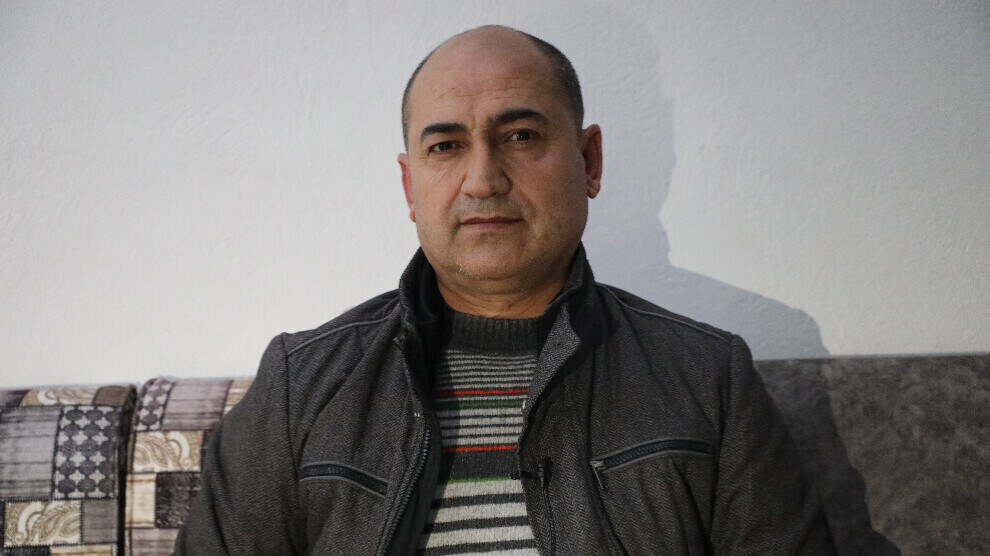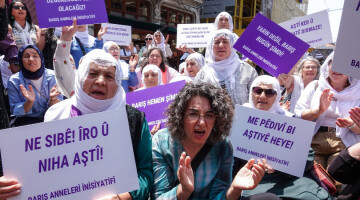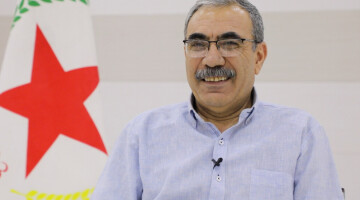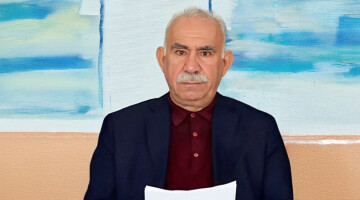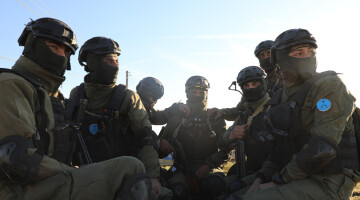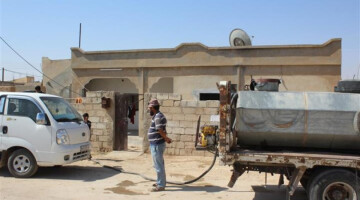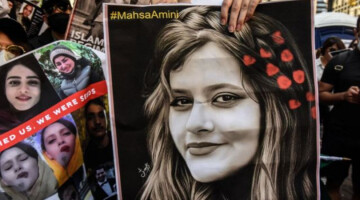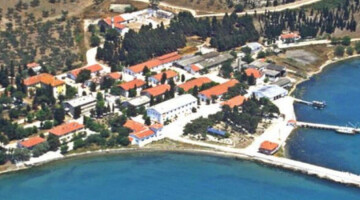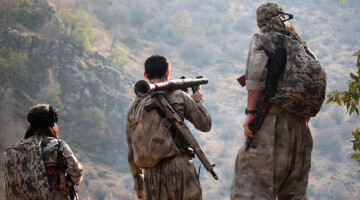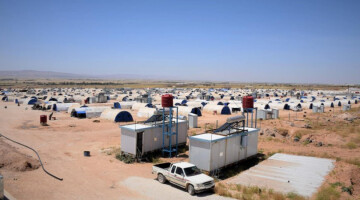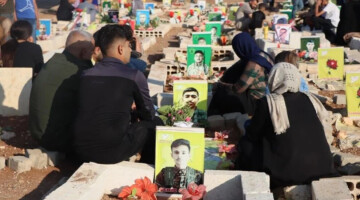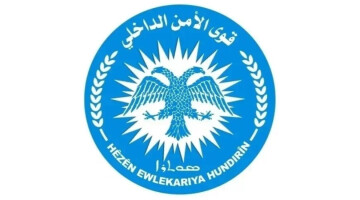The Turkish attacks on the civilian infrastructure in Northern and Eastern Syria continue and have already led to massive destruction. In the city of Tirbespiyê and its surroundings alone, around 120,000 people have been left without electricity and water. While in larger settlements, electricity can be supplied via generators for at least five hours a day, 182 villages are completely cut off from the supply. At the same time, people are also at risk of running out of gas in the middle of winter because the central gas plant in Tirbespiyê was hit. It is expected that the generators will also fail shortly due to the lack of fuel.
In Tirbespiyê district, 14,700 students are unable to attend classes due to the attacks.
Tirbespiyê is organized on a grassroots democratic basis.
Mizgîn Lezgîn comes from the village of Gir Bikêlê near Tirbespiyê. He has lived there for 20 years with his family of seven, including his four children, his brother and his wife, and is deputy co-chair of the Tirbespiyê County Council.
Lezgîn spoke to ANF about the difficulties that people in the city and surrounding villages are facing due to the attacks. The district council is making every effort to provide the population with the necessary services, said Lezgîn adding that there are constant attacks on the infrastructure of Tirbespiyê. “The families living in Tirbespiyê are going through difficult times. All villages and towns in the region are currently without electricity. We have been completely cut off from electricity and water since 13 January. The district's main gas, oil and electricity plants were hit. At the moment there is still gas available, but we will soon be without gas as the main gasworks has been bombed, and the available gas is running out. Important facilities have been attacked. The oil mined here is put at the service of the people. It provided people with electricity; it provided electricity for hospitals and schools. Before the recent attacks, we could provide power from the generator for eight hours, but now we can only provide power for five hours. The diesel will soon run out. We are therefore on the verge of further restricting the power supply.”
“Children become sick from fear”
Lezgîn reported that children in particular were affected by the attacks: “Many children in the district are sick. According to the information we received from the hospital, jaundice is the most common disease. Doctors said the high infection and disease rates were due to excessive fear. The attacks have had a negative impact on our children. Their inner balance is disturbed. One minute they're screaming and the next minute they're panicking at even a normal noise. Before the attack, our children had their own bedrooms. Now we have to sleep in a room together because they are afraid to sleep alone. Bombings and attacks can happen at any moment. We hug our children to sleep. Even if the attacks stopped, the impact they had on them would continue. In the last few days, they haven't even been able to go to school. Our children have their future denied.”
Lezgîn pointed out that people used to get water from wells drilled with their own resources: “Without the wells drilled by the people and the services of the city administration, we would not be able to get even a drop of water. Of course, this water is not enough for even a quarter of the people who live in this district. The district is large, there are hundreds of villages. The Autonomous Administration can only provide services to a certain extent. And there is an embargo on the region."
“The Council stands by the people”
Lezgîn underlined that the district council is doing everything in its hands to alleviate the suffering and has mobilized all its resources. “Power plants and oil fields were attacked as early as December 2023. As a result of these attacks, more than 20 villages near Aliya were affected by power and water outages. A week ago, we had a small amount of electricity and water restored, but with the recent attacks we are back to square one. We solved the electricity problem in these villages using our resources as a council and were able to provide electricity to the villages for three hours so that they could meet their water needs. It took a long time to repair the damage caused to our facilities, people faced great difficulties; and now, just when they can see light on the horizon again, there is darkness again.”
“The government in Damascus must respond to the attacks”
Lezgîn spoke of a “dirty war” against the region and said: “While the Turkish state is shedding tears over the children massacred in Gaza, it is dropping bombs to kill children here. He condemns it when hospitals in Gaza are hit, yet, in Northern and Eastern Syria, however, it is shelling hospitals and places where people are receiving care. Turkey is waging an immoral war. Syria keeps talking about its territorial integrity. Don't Northern and Eastern Syria belong to Syria? To date, the Syrian government has not responded to the attacks, condemned them or called for a halt to the attacks.”
“Our hope is resistance”
Mizgîn Lezgîn concluded: “Our children are being killed. There is no reaction from the world public opinion. While the people in the region are putting up enormous resistance, the world public is turning a blind eye to these attacks and remaining silent. We, the people of Northern and Eastern Syria, do not rely on states, because states only act according to their own interests. Our hope is for the peoples who resist and do not bow to oppression.”

